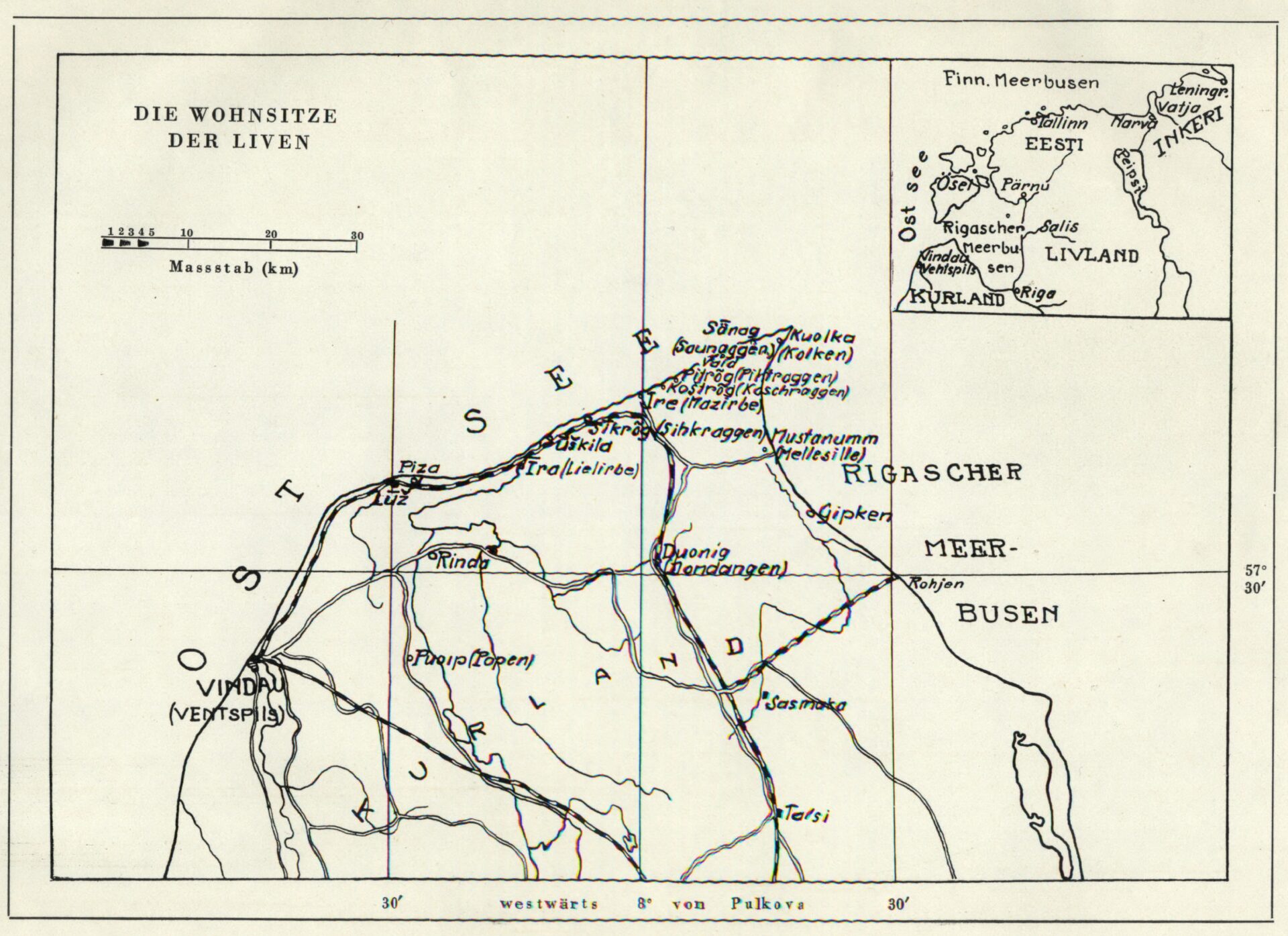
Livonian
5.2. Gramatik / Grammar
Simple past tense
The simple past – or imperfect – tense can be recognized by palatalization and the endings -i, š, ž, īz, –iz.
The personal endings added to the simple past tense are somewhat different from the personal endings that appear in present tense forms (see Unit 2 on the present tense).
For 1st and 3rd person of the affirmative simple past tense, only the simple past stem (marked with the symbol ø in the table below) is used. For the 2nd person singular, the ending -d is added to a vowel or a voiced consonant, -t to a voiceless consonant. A generalization can be seen for 2nd and 3rd person plural: in both cases tõ–final forms are used. The endings –mā and –tā are given in parentheses, because these are used only with the word lǟ’dõ ’to go’ (lekšmā : lekštā). The personal endings of the affirmative simple past for the verbs nǟ’dõ ’to see’ and rõkāndõ ’to speak’ are given below:
| Person | Ending | Examples |
|---|---|---|
| sg 1st prs | ø | ma neiz, rõkāndiz |
| sg 2nd prs | -d ~ -t | sa neizt, rõkāndizt |
| sg 3rd prs | ø | ta neiz, rõkāndiz |
| pl 1st prs | -mõ (~ -mā) | mēg neizmõ, rõkāndizmõ |
| pl 2nd prs | -t -tõ (~ -tā) | tēg neiztõ, rõkāndizt(õ) |
| pl 3rd prs | -t -tõ | ne neiztõ, rõkāndizt(õ) |
The negative simple past is formed using a simple past form of the negative verb and a negative form of the lexical verb. Note: The negative form of the lexical verb used to form the negative simple past is the same as the form used to form the negative present (see the Grammar section of Unit 2).
| Person | Negative | Ending | Examples |
|---|---|---|---|
| sg 1st prs | i’z | ø | ma i’z nǟ, rõkānd |
| sg 2nd prs | i’zt | ø | sa i’zt nǟ, rõkānd |
| sg 3rd prs | i’z | ø | ta i’z nǟ, rõkānd |
| pl 1st prs | i’z | -mõ ~ -m ~ -õm | mēg i’z nǟmõ, rõkāndõm |
| pl 2nd prs | i’zt | -tõ ~ -t ~ -õt | tēg i’zt nǟtõ, rõkāndõt |
| pl 3rd prs | i’zt | -tõ ~ -t ~ -õt | ne i’zt nǟtõ, rõkāndõt |
Therefore, the negative verb is specifically what marks the negative in the simple past tense. Cf:
| Present tense | Simple Past tense |
|---|---|
| Mēg rõkāndõm līvõ kīeldõ | Mēg rõkāndizmõ līvõ kīeldõ |
| ‘We are speaking Livonian’ | ‘We spoke Livonian’ |
| Mēgä’brõkāndõm līvõ kīeldõ | Mēg i’zrõkāndõm līvõ kīeldõ |
| ‘We are not speaking Livonian’ | ‘We did not speak Livonian’ |


